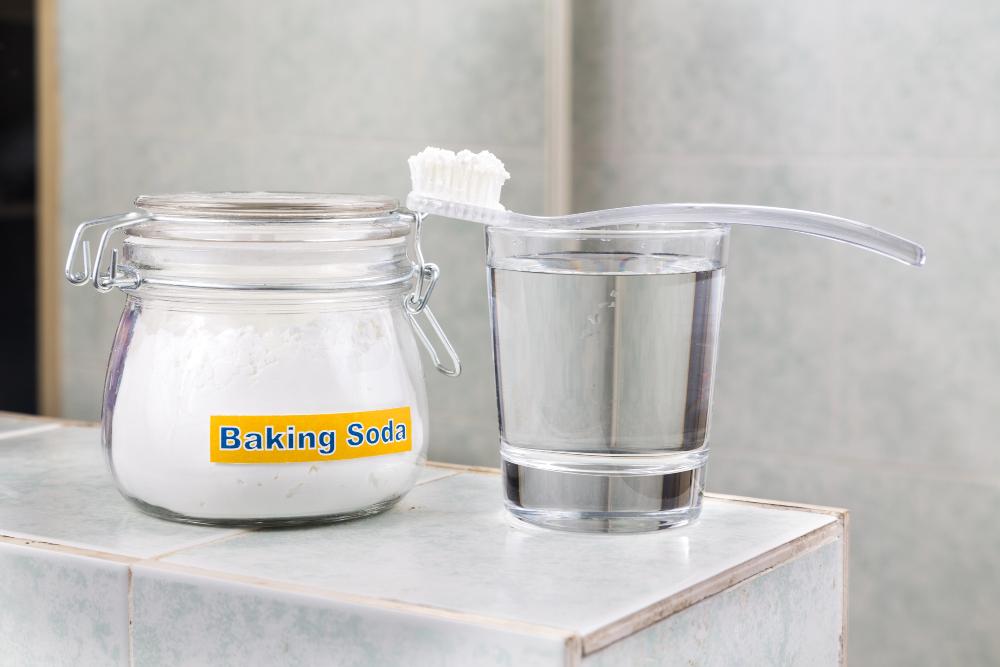Tooth whitening with baking soda has gained popularity as an affordable and convenient method to brighten your smile. But is it safe? In this blog post, we’ll explore the benefits and risks associated with using baking soda for teeth whitening, and provide tips on how to use it effectively and safely.
What is Baking Soda and How Does It Work?
Baking soda, or sodium bicarbonate, is a mild abrasive that can help remove surface stains from teeth. Its alkaline nature neutralizes acids in the mouth, which can contribute to tooth decay and bad breath. When used in toothpaste or mixed with water to form a paste, baking soda can help polish the teeth, giving them a cleaner, whiter appearance.
Benefits of Whitening Teeth with Baking Soda
- Affordable and Accessible: One of the main advantages of using baking soda for tooth whitening is its affordability. Baking soda is inexpensive and widely available, making it a cost-effective alternative to professional teeth whitening treatments.
- Natural and Chemical-Free: Baking soda is a natural substance that does not contain the harsh chemicals often found in commercial whitening products. This makes it a preferable option for individuals looking for a more natural approach to teeth whitening.
- Effective for Surface Stains: Regular use of baking soda can be effective in removing surface stains caused by coffee, tea, and smoking. By gently scrubbing away these stains, baking soda can help restore the natural whiteness of your teeth.
Risks and Considerations
- Abrasiveness: While the mild abrasiveness of baking soda can help remove stains, it can also cause damage if used too frequently. Overuse of baking soda can wear down tooth enamel, leading to increased sensitivity and a higher risk of cavities.
- Not Effective for Deep Stains: Baking soda is effective for surface stains but may not be sufficient for deep or intrinsic stains. For these types of discoloration, professional teeth whitening treatments may be necessary.
- Potential for Gum Irritation: Using baking soda incorrectly can cause gum irritation. It is important to use it sparingly and avoid aggressive brushing to prevent damage to the gums and enamel.
How to Safely Use Baking Soda for Teeth Whitening
- Mix with Toothpaste: A safe way to use baking soda is to mix a small amount with your regular toothpaste. This can help enhance the stain-removing properties of your toothpaste without the risk of over-abrasion.
- Limit Frequency: Limit the use of baking soda to two to three times per week. This will help prevent enamel erosion and reduce the risk of sensitivity.
- Gentle Brushing: Use a soft-bristled toothbrush and gentle, circular motions to brush your teeth. Avoid using excessive force, which can damage the enamel and irritate the gums.
Alternative Teeth Whitening Options
If you are looking for more effective or longer-lasting results, consider other teeth whitening options. Professional treatments, such as those offered by an Invisalign dentist, can provide more noticeable and immediate results. Additionally, over-the-counter whitening kits and products can be a convenient alternative to baking soda.
Tooth whitening with baking soda can be a safe and effective method when used correctly and in moderation. It offers an affordable, natural way to enhance your smile by removing surface stains. However, it is important to be aware of the potential risks and limitations. For deeper stains or more significant whitening, professional treatments may be a better option.
If you’re considering teeth whitening and want to explore the best options for your smile, we at Dr. Alex Rubinov’s practice are here to help. Contact us to schedule a consultation and learn more about our comprehensive dental services, including dental implants, professional teeth whitening, and more. Let us help you achieve the bright, beautiful smile you deserve.


